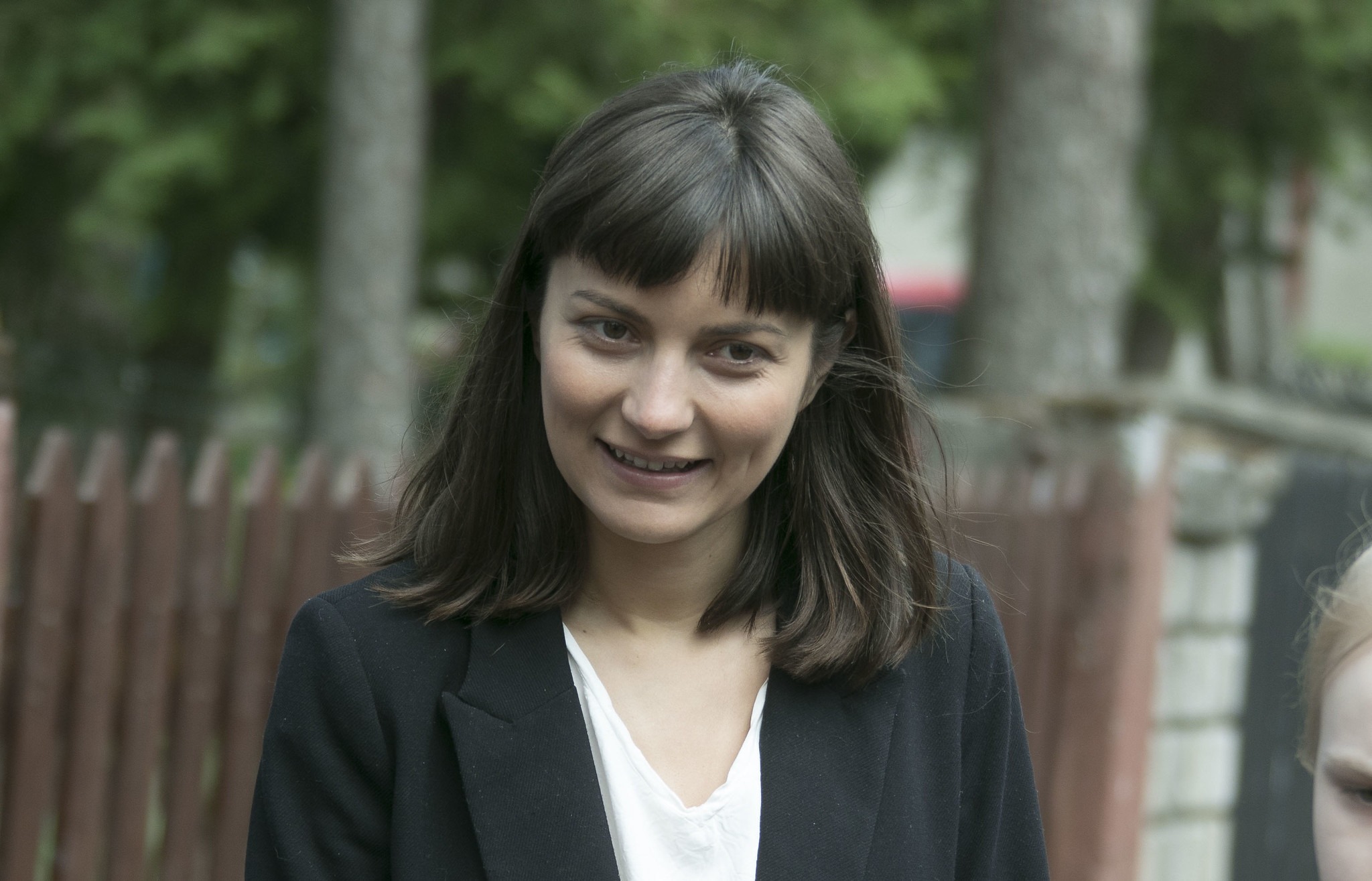
Key Insights:
Throughout the month of October, Lithuanian media landscape was dominated by a few topics, covering event of very different scale. According to social media monitoring tool Awario, topics that attracted the most reader engagement in Lithuania were the following ones:
- Sudden Hamas’ attacks on Israel;
- Russia’s aggression against Ukraine and its spillover effects;
- The Lithuanian Parliament’s (Seimas’) approval of the draft law concerning the real estate tax;
- Protest against proposed property tax outside Seimas;
- The teachers’ protests taking place;
- rapidly increasing numbers of COVID-19 cases in the country;
- Start of the heating season in the country.
Analysis of Kremlin-aligned media in Lithuania reveals a continued focus on promoting the anti-government narrative. All top stories from these specific outlets carry negative sentiments targeting the government, in an attempt to turn their audience against the main ruling politicians and national institutions. During the reporting period, Kremlin-aligned media outlets emphasized the “failing education system” (due to the ongoing teachers’ protests), commented on all the revealed candidacies for the forthcoming presidential elections, emphasized the government’s inadequate response to false bomb threats and detailly analysed the case of Lithuanian defence chief Valdemaras Rupšys, misusing his state allowance.
Pro-Kremlin media has also continued to undermine support for Ukraine by claiming that the main initiators of its fundraisers in Lithuania are widely involved in accounting scandals and are only looking to benefit from the funds themselves. Besides that, during this reporting period, hostile media has rhetorically questioned the need for humanitarian support elsewhere (following the Hamas attacks on Israel), ironically asking, how long will it take until another fundraiser is created “to take away our money for unclear purposes”.
Overview of findings:
- A total of 649 articles (compared to 521 articles throughout September) were scrutinized from four Kremlin-aligned media outlets, still functional in Lithuania.
- Special attention was drawn to Kandrotas-Celofanas after the photo of him presenting his candidacy for the presidency in front of the Vytis sculpture was shared online (see screenshot above, on the right). In the photo, individuals stand behind him holding Lithuanian flag upside-down. For this specifically and for his decision to candidate for the president in general, Kandrotas became the subject of numerous memes across social media, yet again receiving a disproportionate amount of attention.
- An Awario media monitoring tool reveals the remaining importance of Russia’s aggression against Ukraine, as mentions of Ukraine (and word’s forms) in Lithuanian media (see graph below) scores nearly 6K with a visible growth of 44%, compared to the month of September. Yet, analysis did not reveal any specific event that would have accelerated such a sudden increase of the number.
- Data from the Awario monitoring tool also shows that nearly 14% of these pieces held a negative sentiment. That signals the ongoing usage of war for the spread of anti-Ukrainian and anti-government narratives.
- The Lithuanian media has also reported widely and prominently on the attack by Hamas terrorists against Israeli citizens on the 7th October. While the Lithuanian parliament has unanimously adopted a resolution condemning these attacks in Israel, digital media were full of varying opinions and sparked intense debates between social media users.
Story of the month: Lithuanian schools inundated with bomb threats in coordinated attack
Within this reporting period, Lithuanian police have reported that the country’s schools have been flooded with bomb threats, following a similar pattern of incidents in neighboring countries. Lithuania‘s Police chief Renatas Pozela claimed that a coordinated mass attack involved hundreds of emails sent from a server within the European Union. Most of the messages were in Russian language (see an example of the threats received on left), some included clear political content. The emails stated that explosives had been planted in the educational establishments, highlighted the time sensitivity and concluding with a direct threat: “THIS IS THE END FOR YOU” (translated from Russian language).
In just a couple of days, police received more than 1,500 reports of bomb threats from various institutions. The threats were determined to be “a targeted and coordinated attack carried out at the initiative of hostile states.” The news quickly took over the media landscape, as it led to the evacuation of thousands of children from schools and kindergartens. Parents left their workplaces to take their children home.
Even though the bomb threats were treated with suspicion from the very beginning, schools still had to follow security protocol and evacuate the buildings. The Department of State Security explained that the purpose of the attack was to create panic and disrupt the work of the special services.
Meanwhile, the official Facebook page of Lithuania’s Police published a post (see screenshot on the left) explaining the situation, asking everyone to remain calm and follow officers’ directions. The operatively posted instructions received thousands of positive reactions, supporting comments that were the most actively engaged (see example on the lower left, translation “Thank you for your work!”) and were widely shared across social media platforms.
Talking about broader event‘s coverage on social media, bomb threats against Lithuanian schools were extensively covered on social media, but the coverage and reactions varied depending on the media source. Some Kremlin-aligned outlets quoted independent media and neutrally covered the threats, but others were more biased. For example, Respublika.lt published an article with the controversial clickbait headline “Who aims to blow us all up: enemies or our own local hooligans?” The article argued that the bomb threats were likely carried out by domestic hooligans, despite assurances from the police and State Security Department that they were from an enemy. The article, which was posted on Respublika.lt’s official Facebook page, sparked heated discussions and a wave of dissatisfaction. Commenters followed the theory that the threats came from within Lithuania and turned the event into an opportunity to criticize the ruling government.
The vast majority of comments agreed with the article, being highly negative and harsh towards the government. The most engaged and supported by other social media users comments also expressed clearly negative sentiment.
Other articles analysed from Kremlin-aligned media, whether original content or republished from independent media, generated hundreds of negative comments towards the ruling government. Once again, the event was massively used to spread the anti-government narrative.
Examples of social media users’ comments under Kremlin-aligned media posts:
“I wonder if anyone has even seen those letters? Or they were sent directly from the government’s office? Last week it was the exact same situation in Latvia. Today I read about that in Moldova, Greece… doesn’t it look like an instruction sent from above? My main question is – what is the purpose of our state’s administrators? To whom and what exactly have they promised?” (upper left); “What else… this is the idea of the Seimas and their companions, as they call experts, a trick to mislead the people once again. I just think that it will not be long before many people open their eyes and see what is what” (lower left); “Maybe new taxes and fines are behind it..
It is very convenient to cause panic and quietly make decisions unfavorable to the whole nation”(right)
Apart from Kremlin-sympathetic media, well-known independent journalist Marius Laurinavičius posted an open question on his Facebook profile (see the post below, on the left), asking his social media audience: “What do you think: do the putler’s [reference to Vladimir Putin, strongly associating him with Adolf Hitler] monsters coordinate their actions with the ‘Hamas’ interests, or is it ‘totally unrelated’?” By putting the last words in the brackets, he expressed his clear opinion about concurrent interests between Russia and Hamas and was not alone in drawing parallels between the Kremlin and Hamas. Social media commenters under his post agreed with the expressed stance, with some claiming that “of course they coordinate. It’s practically the same formation” (see comment on the upper right), while others ironically claimed “Of course not! How could they! They are totally unrelated, [pictures] hang close to each other for no purpose” (see comment on the lower right).
Coverage of bomb threats across Lithuania and neighboring countries strongly varied depending on the source of publishment and its validity. Despite positive reactions towards the work of Lithuanian police in this case, Kremlin-aligned actors have managed to use the event to extensively spread the anti-government narrative. One of the most prominent pro-Kremlin narratives is expected to intensify even further, as three different elections (Presidential elections, elections to the European Parliament, Elections to the Seimas) are planned next year.









